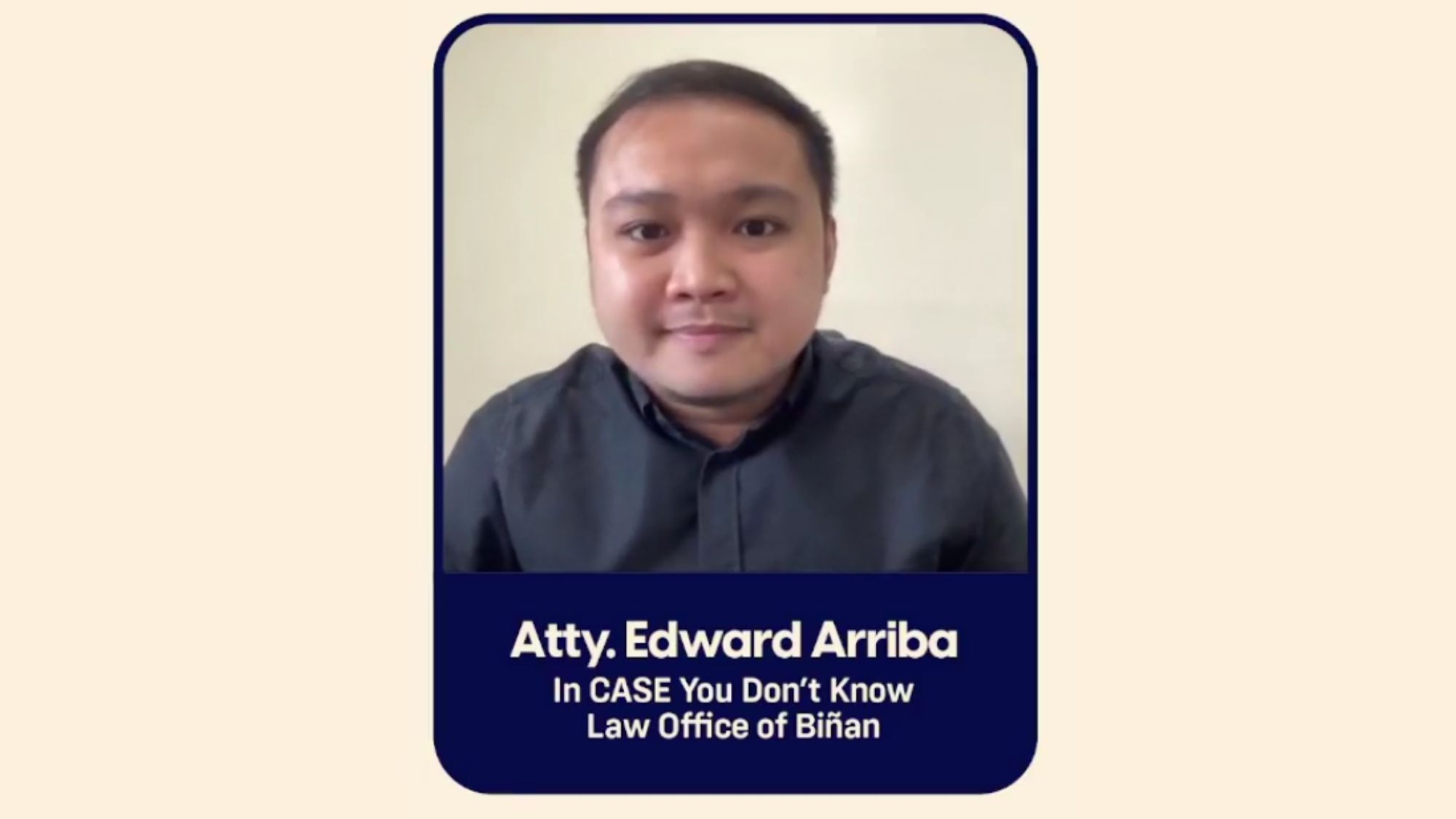The enactment of the Safe Spaces Act "updated" the first anti-sexual harassment law enacted in the Philippines, Republic Act No. 7877 (Anti-Sexual Harassment Act of 1995), a lawyer told OpinYon.
WHAT does and does not constitute sexual harassment? And how do we know if our partner is consenting or not?
Those were the topics explored by Atty. Edward Arriba during his segment, “In CASE You Don’t Know,” during the July 7 episode of “OpinYon News Ngayon,” as he explained the salient points of Republic Act No. 11313 (Safe Spaces Act of 2019).
During the segment, Arriba, explained that the enactment of R.A. 11313 "updated" the first anti-sexual harassment law enacted in the Philippines, Republic Act No. 7877 (Anti-Sexual Harassment Act of 1995).
"[Sa R.A. 7877], ang sexual harassment ay nakapaloob lamang sa tatlong pagkakataon: employment, educational institutions, at [sports] training institutions," he enumerated.
“After 24 years, maganda na na-update po ang ating Kongreso at naipasa ang Safe Spaces Act.”
However, the lawyer clarified that the enactment of R.A. 11313 does not repeal the earlier law on sexual harassment. “Pwede pa rin po kayong makasuhan ng sexual harassment kasabay ng Safe Spaces Act.”
Expanded reach
Arriba further explained that R.A. 11313, more popularly known as the “Bawal ang Bastos Act,” expanded the scope and reach of acts that can be constituted as “sexual harassment.”
Included among these are catcalling, public exposure, voyeurism, and online harassment such as sending lewd messages, pictures or videos.
"Hindi na lamang po doon sa tatlong pagkakataon... Sa Safe Spaces Act, dinagdagan po, kasama na po ang public places,” Arriba stressed.
“At ang maganda po sa batas na ito, since na-enact po ito sa panahon kung saan laganap na ang paggamit ng social media, ay dinagdag po ng ating Kongreso ang online violations. So kapag kayo po ay nakaranas ng pambabastos sa online, pasok na po iyon sa Safe Spaces Act."
Consent
Arriba added that consent between two parties must be “expressed,” not assumed, under the Safe Spaces Act.
"Kunwari, yung magkasintahan, tapos sinabi ng isa, 'Magsend ka ng pictures ng iyong katawan,' at nagpadala naman yung babae, meron pong consent as to the sending doon sa taong nanghingi," he said.
"Pero kung ang kanyang boyfriend ay na-save yung litrato at isi- share niya sa ibang tao, hindi na po iyon sakop ng consent. So pwede na po siyang makasuhan sa ilalim ng Safe Spaces Act."
Gender-sensitive
Another update under the Safe Spaces Act, Arriba said, is including “gender-based” abuses under the scope of sexual harassment acts.
"Dito po sa Safe Spaces Act, naisama na po ang gender-based abuses, gaya po ng pagsasabi ng misogynistic and homophobic remarks," he explained.
“Ang isa pong kagandahan ng batas na ito ay naisama na po sa proteksyon ng batas ang ating LGBT community.”
See the full interview on OpinYon Facebook Page . (ONT)
Tags: #OpinYonLive, #OpinYonNewsNgayon, #InCaseYouDidntKnow, #SafeSpacesAct, #onlineharassment
